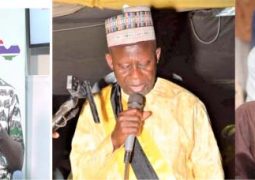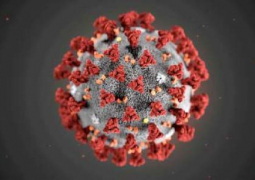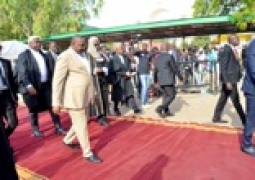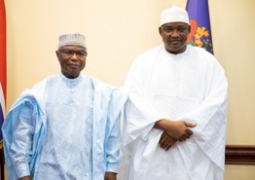Moving the motion, Mambury Njie, minister for Finance and Economic Affairs informed that the focus of the Supplementary Budget Proposal is the covering costs arising from the need to combat the coronavirus outbreak, and other essential and urgent budgetary needs that are directly or indirectly related to the pandemic.
Minister Njie indicated that there is a need to support the private sector, in particular, the tourism and the hospitality sector so that they may cope with the effects of the pandemic.
The supplementary estimates, he went on, is also formulated to address specific needs that may not necessarily be associated with the covid-19 pandemic, including payments owed to Kharafi and Shapoorji for rehabilitation of the Basse and Brikama markets, construction of a Mausoleum for the country’s late founding father, Sir Dawda Kairaba Jawara, rural roads project, recapitalizing the Central Bank and the settlement of the International Trade Finance Corporation (ITFC) facility on behalf of The Gambia Groundnut Corporation (GGC).
He said given the difficulty in predicting the duration of this pandemic, coupled with the fact that government has already introduced various measures, such as the closure of non-essential businesses to control the spread of the coronavirus, they therefore deem it fitting to provide some sort of humanitarian assistance to the general public.
According to him, almost half of the population live below the poverty level (less than $1.25/day), and a meaningful sector of the economy is in the informal sector, where most people earn daily income/wages to feed their families.
"As a result we have factored D845 million (including contingency and logistics) on this SAP to cater for the provision of rice, sugar and vegetable oil to be distributed to the most vulnerable households across the country," he explained.
Finance Minister also explained that the distribution mechanism was on the basis of the 2013 Integrated House Survey (IHS) adjusted by a recent survey conducted by the National Assembly Members. This was done in collaboration with Local Government Authorities and the National Disaster Management Agency (NDMA) that reached out to all rural communities to ascertain the true impact of covid-19 pandemic.
"However, this exercise indicated that a total of 201,600 households displayed a high level of vulnerability. Of these, 84 percent (169,344 households) are in the rural communities and 16 percent (32,256 households) in the urban areas".
In addition to the recent humanitarian support to vulnerable communities, Finance Minister stated that government is also working with the World Food Programme (WFP) and the World Bank to provide additional food assistance to the most vulnerable people.
That intervention, he went on, would target the 733,000 most vulnerable and food insecure people (91,625 households) for three months (July to September), providing rice, cash transfer to cover beans, oil and salt.
"Cash transfers will be delivered through mobile digital payments. The project is estimated at D337 million, and government has committed to contribute D224 million" he added.





